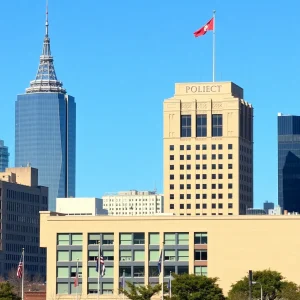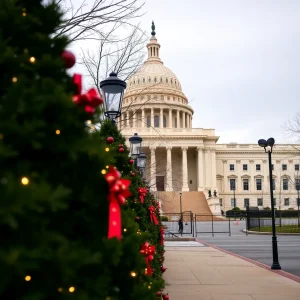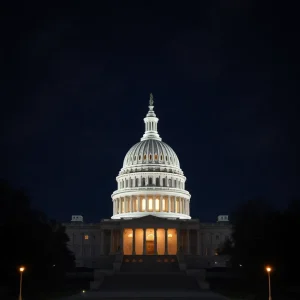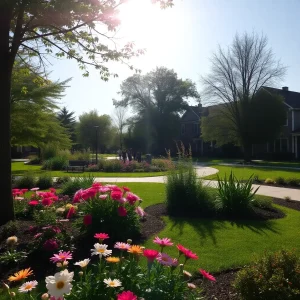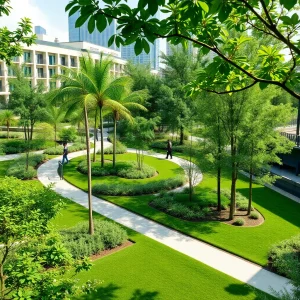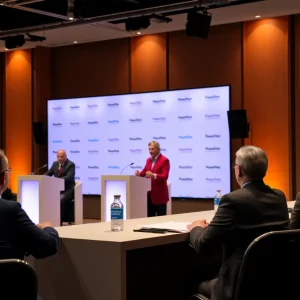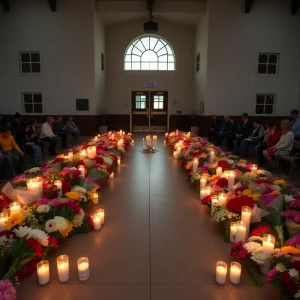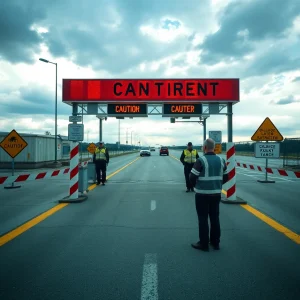Concerns Rise in Birmingham Over Safety and Community Response
In the wake of recent violence, community leaders and residents in Birmingham are grappling with growing concerns about safety and the implications for the city’s future. A recent mass shooting in Five Points South left the community stunned and has raised questions about how to keep families and loved ones safe in an increasingly tense environment.
Birmingham has seen an alarming increase in the body count this year, prompting residents to reconsider their activities and even their willingness to visit certain neighborhoods. Local businessman David Sher, a prominent voice in the community, offers an important perspective on the issues facing Birmingham. “I’ve walked the streets of Five Points South hundreds of times,” he notes, reflecting on his family’s connections to the area. “Yet, here we are.”
A Shared Responsibility
For many residents, avoiding these neighborhoods altogether isn’t seen as a viable solution. “Criminals with guns don’t care about city limits,” Sher stated during a recent speech to a small audience at The Club, highlighting the city’s collective responsibility in addressing crime and safety issues. Only a fraction of the Birmingham-Hoover metro area’s population currently resides within the city limits. With only 17% of the population living in the City of Birmingham, a sense of disconnection grows as residents of neighboring communities navigate their own safety concerns.
The decline in Birmingham’s population figures has made headlines, and many fear the consequences if more residents opt to leave. Sher emphasizes that it is not just a Birmingham problem but an issue that affects everyone in the metro area. “We might not live inside the city, but it’s our community too,” he remarked. “What happens there affects all of us.”
Perception vs. Reality
As crime statistics continue to drive perceptions of safety, Sher points out the importance of perspective. Despite portrayals of Birmingham as a dangerous city, such narratives often overlook key historical contexts and socioeconomic factors. “This city has a long history of violence and systemic issues that go beyond the current administration,” he explained. “It’s a complex problem that we all need to tackle together.”
The impact of crime on local businesses is another pressing concern. Potential new companies may be hesitant to set up shop in Birmingham due to the heightened fears surrounding safety. Sher emphasized that while areas like Trussville and other suburbs have potential, it is crucial to acknowledge that many businesses are attracted initially by what Birmingham offers. “Trussville may give businesses a home today, but Birmingham is what draws them here in the first place,” he said.
The Call for Change
Community members are also calling for leadership and action to combat these serious issues. There have been suggestions that increased police presence, particularly through community policing strategies, might help raise public confidence. Anecdotes shared by residents indicate that visible and approachable officers contribute to a greater sense of safety. “Secure neighborhoods are built on trust,” says a local resident, who echoed Sher’s sentiments about meaningful engagement.
Some voices in the community argue that the sport of recognizing issues like mental health, addiction, and societal pressures can help curb violence. Educating young people on conflict resolution and appropriate coping mechanisms could potentially reduce incidents fueled by anger or impulsive behavior.
Staying the Course
As Birmingham navigates these troubling times, leaders like David Sher remain hopeful for a brighter future, stressing the importance of unity and collaboration. “We can’t give up on each other,” he urged the audience. “Together, we can create a safer, more vibrant Birmingham for everyone.”
The call to action is clear: members of the community, regardless of where they live, need to engage in conversations about safety, support local businesses, and work collectively to build a better environment for all. In doing so, Birmingham might just find its way back to the thriving city its residents dream it could be.







